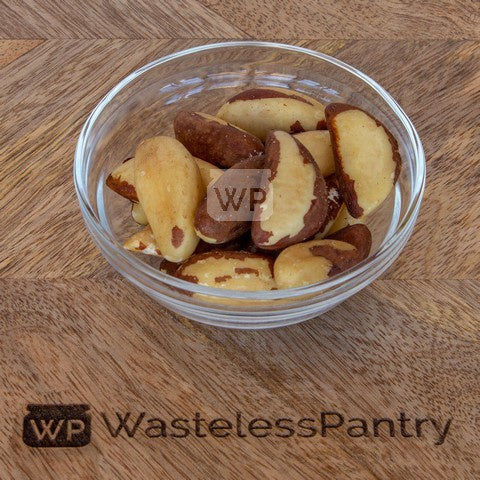Nut Butter Peanuts: Nutritional Significance and Role in a Healthy Diet
- Shopmundaring Wastelesspantry

- Aug 13
- 2 min read

Nut butter made from peanuts has earned a lasting place in kitchens worldwide, not only for its rich flavor and versatility but also for its nutritional benefits. Beyond being a comfort food spread on toast or a flavorful addition to smoothies and baked goods, nut butter peanuts offer a dense package of proteins, healthy fats, vitamins, and minerals that contribute to overall health.
1. Nutritional Profile of Peanut Butter
Protein: Peanuts are a plant-based protein source, with two tablespoons of peanut butter delivering about 7–8 grams of protein. This supports muscle repair, immune function, and the production of enzymes.
Healthy fats: Peanut butter contains monounsaturated and polyunsaturated fats, which are beneficial for heart health when consumed in moderation.
Micronutrients: It provides vitamin E (an antioxidant that protects cells), magnesium (important for nerve and muscle function), potassium (for blood pressure regulation), and small amounts of iron and zinc.
Fiber: Peanut butter contains dietary fiber that supports digestion and helps maintain satiety.
2. Heart Health Benefits
Research has shown that moderate consumption of peanut butter can support cardiovascular health. The healthy fats in peanuts, particularly monounsaturated fats, help maintain healthy cholesterol levels. Additionally, peanuts contain compounds such as resveratrol and phytosterols, which may contribute to reduced inflammation and improved arterial function.
3. Role in Weight Management
Although calorie-dense, peanut butter can aid in weight control when consumed in moderation and mindfully. The combination of protein, fiber, and healthy fats promotes a sense of fullness, potentially reducing overall calorie intake during the day. This makes it a useful snack option for people seeking to manage hunger without resorting to highly processed foods.
4. Energy and Performance Support
Peanut butter’s nutrient density makes it an excellent energy source for athletes, active individuals, and people with high caloric needs. Its combination of macronutrients provides both quick and sustained energy release, supporting endurance and post-exercise recovery. For this reason, it is often included in energy bars, sports snacks, and pre-workout meals.
5. Accessibility and Affordability
Compared to many other nut butters, such as almond or cashew, peanut butter is generally more affordable and widely available. This makes it a practical choice for families seeking a nutrient-rich protein source on a budget. Because peanuts can be grown in a variety of climates and stored for extended periods, peanut butter also contributes to food security in many regions.
6. Versatility in the Kitchen
Peanut butter’s culinary flexibility adds to its significance. It can be spread on bread, incorporated into sauces like satay, blended into smoothies, or used as a base in baked goods. Its sweet-savory profile makes it suitable for both desserts and savory dishes, allowing it to complement a diverse range of cultural cuisines.
Conclusion
Nut butter peanuts, particularly in the form of minimally processed peanut butter, represent a compact, versatile, and nutrient-dense food that supports heart health, aids weight management, fuels energy needs, and offers culinary adaptability. When consumed in moderation as part of a balanced diet, peanut butter can be both a comfort food and a functional nutritional choice.


Comments